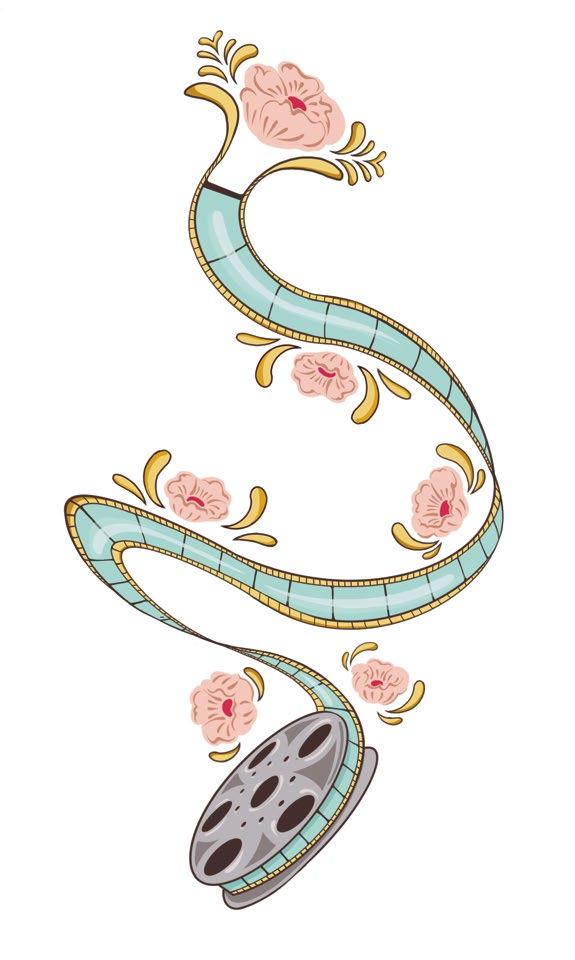
3 minute read
AN INTRODUCTION TO CAPILANO’S OWN DOREEN MANUEL
ELLIOT WHITE Contributor MICHELLE LUSSIER (SHE/THEY) Illustrator
A young woman sits in the driver’s seat of a red Buick Riviera — she plays with a pack of cigarettes in her hands as the car jitters to a stop in the middle of a gravel path. The back roads are quiet, save for a few chittering sounds of nature. Our protagonist, Mary, gets out of the car. She’s alone. The scene is natural, tense, and the small details are a masterclass in storytelling. From the fringes on the edges of her old denim jacket, to the flicking on and off of a lighter as she calls her mom — every shot feels genuine.
Advertisement
This is the opening scene of Doreen Manuel’s 2012 Crazy8’s short “These Walls” and her track record of authentic storytelling has only developed further over the years. The story follows Mary as she comes across the seemingly abandoned remains of a residential school. On the grounds, she receives visions and the results are both horrifying and poignant. It’s a vision of the past that, though made 9 years ago, feels current and no less relevant than today in 2021. It was rescreened in 2018 at the Imagine Native Film Festival, and the TIFF Bell Lightbox.
“These Walls” may have been Manuel’s first credit directing, but it was not her first time being on set. With over 15 years of art directing, writing and editing, Manuel’s film experience begins all the way back in 2009 — with a producer role on a provocative documentary short entitled “My People Say”, an exploration on the aggression urban development has on wildlife. The throughline with her work is a deep connection to both her lineage as an Indigenous woman, as well as a strong relationship with the environment.
Manuel’s ideology around culture begins with her own heritage as a female member of the Neskonlith First Nation. The sixth child of the late Grand Chief Dr. George Manuel, an Indigenous political leader, and Marceline Manuel, a spiritual leader, she has continued her connection to community through her art. Not only with filmmaking, but with traditional art as well — being awarded the Fulmer Award in First Nations Art in 2019 for her intricate beading learned from her Ktunaxa grandmother and mother.
The skill of traditional beadwork was initially taught to her as a possible means of employment, when it may be necessary to provide for her family. However, she has since taken up beading now out of sheer love for the art, even working on beading Converse sneakers with exceptional detail. She views beading almost as a form of painting, manipulating and shaping the beads like strokes of a brush.
A decorated and experienced artist, Manuel still insists on furthering her knowledge. Coming to us as a UBC alumna, a graduate with a Master of Fine Arts degree in Film Production, and having graduated from Thompson Rivers University — earning her BA in English back in 2009. She also holds a diploma of Indigenous Film and Television, from none other than Capilano University.
Throughout her life, she has emphasized the importance of recording factual story and preserving culture and language. “The telling of story empowers the visionary with voice. Everyone has a story to tell,” reads her biography on the CapU website. It also details her recognitions and achievements, including the Woman of the Year award from the Spotlight Gala, hosted by Women in Film and Television Vancouver. This achievement is awarded to women who not only have gained success in the film industry, but have also strived to fight for opportunities for other women in film.
Currently Manuel heads not only her own production company, Running Wolf Productions, but has been one of the founders of “Tricksters and Writers,” a program dedicated to helping Indigenous women get their start in film writing. She acts as an advisor and instructor in all topics offered. The program not only teaches women the fundamentals of script writing, but also goes over funding and pitching strategies, so that they can see their projects on the big screen.
The courses were held last year and even had table reads over Zoom.
Doreen has made clear strides to support the women following her in the industry. Working with Women in Film and TV on the board of Equity & Inclusion, as well as cultivating a community working towards creating a more inclusive space for Indigenous female storytellers.
Her newest project, produced in 2019, “Unceded Chiefs,” follows the Indigenous leaders back in the 1960s who unified against the 1969 White Paper Policy — a policy unveiled by Pierre Trudeau in an attempt to abolish the Indian Act. This historic event is captured through interviews and archived audio clips, woven into a story of resilience in a time of oppression by the Canadian government. Manuel not only directed “Unceded Chiefs” but was also an interview subject herself. In her interview portions, she talks about her father, George Manuel, as he was one of the leaders in the fight against this policy. She carries on the legacy of activism in her work, telling the stories of those Indigenous voices who have come before her.
Manuel is the current Director of the Bosa Centre for Film and Animation, the first Indigenous woman ever to head a filmmaking program at a major Canadian institution.
You can also find her artwork, as well as table reads of her projects @doreen.manuel on Instagram.






